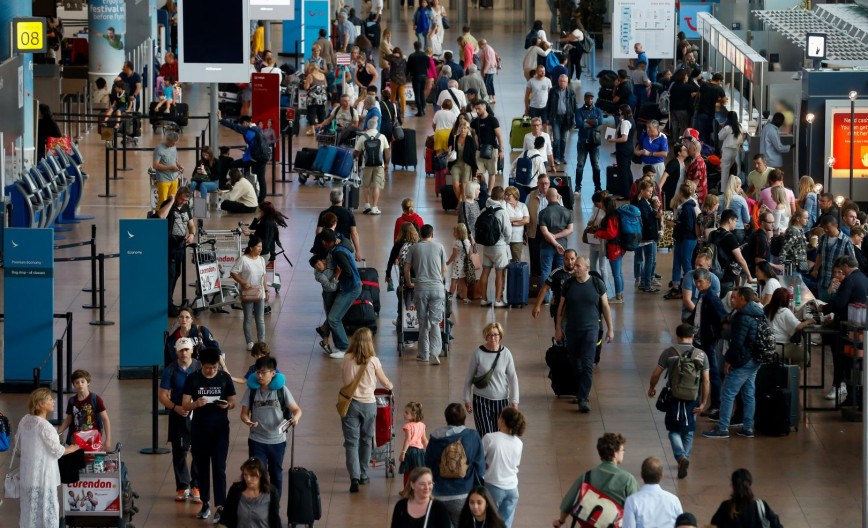Just as the holidays are approaching, the Covid-19 parameters have started rising again. And while another wave of infections is as good as certain, experts stressed that there is no reason to be alarmed.
After weeks of infection and hospitalisation figures declining, both indicators have started going up again – something we are no longer used to, according to Steven Van Gucht, Virologist at the Sciensano National Health Institute.
"But it was expected that the curve would rise again at some point," he said on VRT television programme 'Laat' on Tuesday evening. "It would be improbable and unrealistic to expect that the curve would only go down and stay there."
Currently, an average of 1,878 infections per day is being recorded, which is 15% more than last week. The number of hospital admissions, too, rose by 19% compared to last week. "While that increase seems quite spectacular, it still represents relatively few infections in absolute numbers."
'Grandchildren of Omicron'
Van Gucht added that countries such as Portugal and South Africa have already gone through a similar wave in recent weeks, and it died down on its own. "We hope that we will see the same here."
Travelling abroad during the summer holidays should not be a problem either, according to him. "Whether you are on the metro in Madrid, Paris or Brussels, it does not really matter at the moment. You see the same dynamics in different countries."
The current increase in the figures is mainly due to the emergence of two new variants: BA.4 and BA.5 – two sub-variants of the less infectious Omicron family, which Van Gucht called "grandchildren of the first Omicron variant."
While he is certain that the figures will continue to rise for a while, the experts' mathematical models show that "it will be a hill, not a mountain of infections coming our way," Van Gucht clarified. "We are not going to end up in a red zone."
Related News
- Barely half of over-80s accepted invitation for second booster so far
- Covid-19 cases and hospitalisations continue to rise in Belgium
In the meantime, virologist Marc Van Ranst told Bruzz that it is "very unlikely" that the Consultative Committee will have to decide on stricter measures again. "Perhaps we will see rising figures for days or weeks, but it is equally possible that the numbers will start to fall again next week. That is why there is no demand for collective measures."
Still, Van Ranst stressed that it never hurts to remain cautious, particularly for people in fragile health. "For example, wearing a mask on public transport remains useful. But those are individual measures, not collective ones.”
He added that the authorities and the expert groups are monitoring the situation closely, and will continue to do so. "But it is normal that we behave without thinking about Covid-19. I do that too. We adapt our behaviour to the situation."

